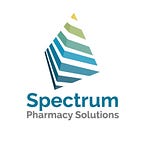Are Pharmacy Benefit Managers Good?
Pharmacy Benefit Managers (PBMs) are your advocates in the healthcare system, helping patients and payers reduce prescription drug spending.
PBMs administer prescription drug plans for more than 266 million Americans who have health insurance through a variety of sources, including commercial health plans, self-insured employer plans, union plans, Medicare Part D plans, the Federal Employees Health Benefits Program (FEHBP), state government employee plans, and Medicaid-administered plans. Over the next decade, PBMs will save health plan sponsors and consumers more than $1 billion on prescriptions.
A Pharmacy Benefit Manager (PBM) is a term that refers to a person who manages a Pharmacy Benefit Manager, or PBM, which is a critical part of the healthcare system. They contract with key players in the pharmaceutical supply chain, ranging from drug manufacturers and insurance companies to retail pharmacies. When PBMs were founded, their primary goal was to save insurance companies time by processing prescription drugs on their behalf. PBMs quickly recognized the opportunity to expand their business. Today, they help people achieve their health goals and manage their drug costs.
PBMs offer a wide range of services. These include mail order pharmacies. After verification of the prescription by a pharmacist, the machines package and label the prescriptions which are then delivered to the patient’s home. This is beneficial for people with chronic illnesses and limited transportation options. In addition, PBMs develop their own formularies, which are lists of drugs covered by insurance. Forms set out the price patients will pay for specific prescriptions based on their insurance plan. In other words, by limiting patient options, PBMs choose which prescriptions to take. Doctors are more likely to prescribe off-the-shelf drugs because they are the cheapest, even if prescribing is not the best option for the patient. Is it optimal? No, but the price is critical.
Contracts with pharmaceutical companies are one of the primary responsibilities of pharmacy benefit managers. Since PBMs serve more than 266 million Americans, they enjoy superior buying power and can enjoy massive savings similar to those found at Costco. Pharmaceutical manufacturers compensate PBMs with a reimbursement equal to a fixed percentage of the cost of the drug in exchange for listing their prescriptions on the formulary. It’s a win-win situation. PBMs are discounted and the drug manufacturer increases sales by being included in the formulary. Rebates incentivize PBMs to prioritize one manufacturer’s drug over another. Additionally, PBMs can choose to include the most expensive drug on their formulary because higher reimbursement equals higher profit.
Let me start by discussing refunds in general. A rebate, by definition, is a kind of marketing offer used to entice consumers to buy a product. This is the amount paid by a consumer following a return, refund or reduction of the amount already paid.
Have you ever mailed a rebate after buying new tires for your car or a year’s supply of contact lenses? These items often come with mail-in rebates. And the good ones? Do you save money at the supermarket using coupons? How about saving $1 on laundry detergent? If so, you also received a discount. Why not?
As a result, everyone is competing for a share of drug reimbursement. PBMs want it to offset their costs, health insurers want to use some of it to reduce member premiums and out-of-pocket costs, and consumers think it should be fully passed on to them.
Meanwhile, the government is proposing to eliminate all prescription reimbursements, eliminating the need for high drug costs in the first place. It is unclear whether a no-rebate system would work in practice. If there is no doubt that the overall strategy is wrong, is it entirely PBM’s responsibility?
Will there ever be a satisfactory solution? We probably will, given that three of the largest PBMs have been bought or purchased by health insurers. Aetna was acquired by CVS, Express Scripts was acquired by Cigna and United Healthcare acquired Optum.
This market development and change in business strategy may stimulate the development of new solutions to address the problem of rising drug prices. These newly merged companies must put the consumer first if they are to have a meaningful impact on reducing drug costs. PBMs can and will make a difference by engaging with providers and basing forms on the most useful and cost effective option for the consumer.
Perhaps one of the most compelling benefits of PBMs is their ability to influence the price of prescription drugs. These companies are essential components of the supply chain, with three major brands (CVS Caremark, OptumRx from United Healthcare and Express Scripts) said to control 80–85% of the market.
Due to their dominant position in the market, these companies have considerable influence in negotiating lower prices with drug manufacturers. In addition to cost savings on major pharmaceuticals, these agreements can lead to increased use of generics, thereby reducing total plan expenditures and member out-of-pocket costs.
